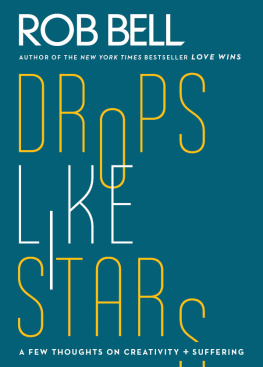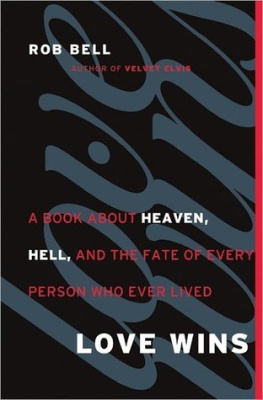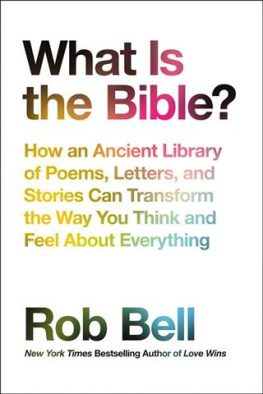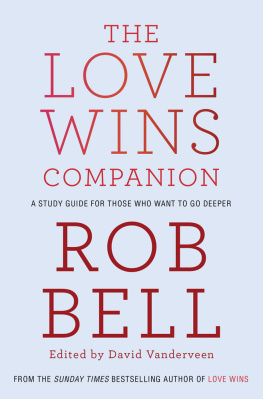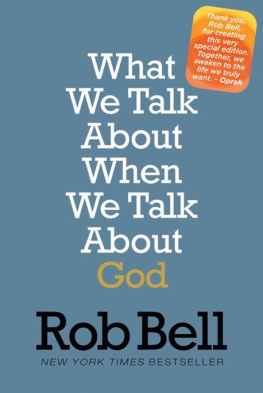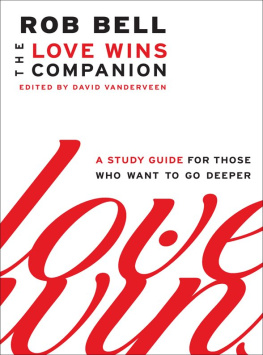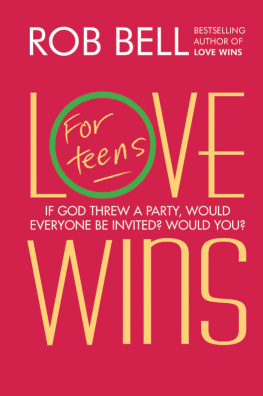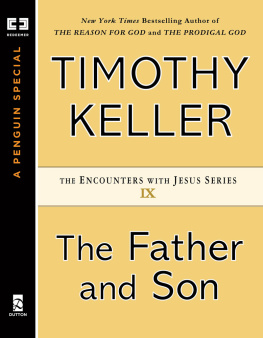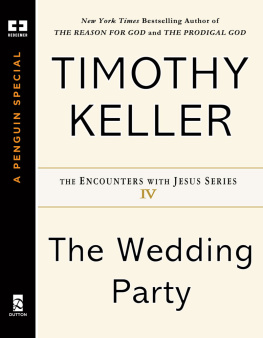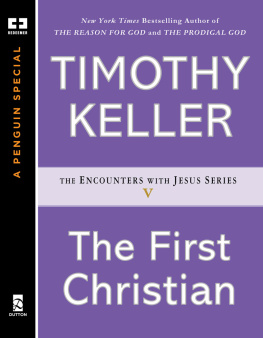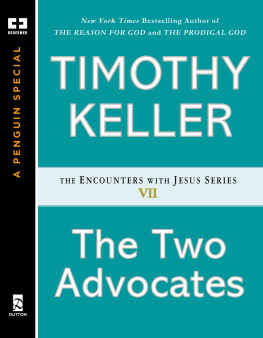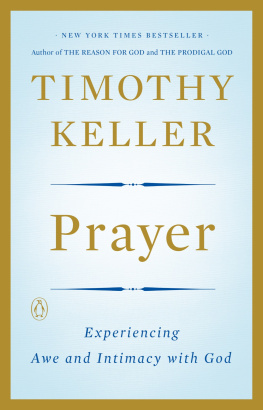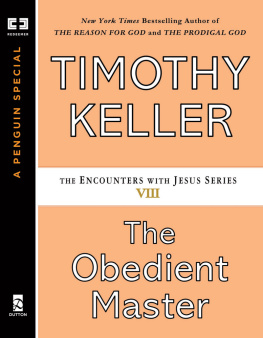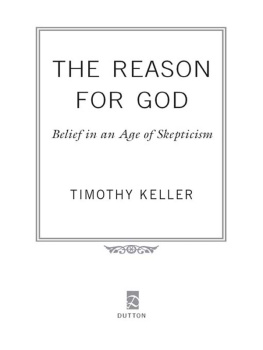Love Wins
What We Talk About When We Talk About God
The Zimzum of Love
Velvet Elvis
Jesus Wants to Save Christians
Sex God
Drops Like Stars
Love Wins Companion
Love Wins: For Teens
Drops Like Stars
A Few Thoughts on Creativity and Suffering
ROB BELL

Contents
CHAPTER 1
The Art of Disruption
I know a man who has two sons.
Both of his sons are married, and both their wives became pregnant in the same year. Out of the two pregnancies,
one ended in a miscarriage,
the other in a healthy baby boy.
And so twice in that year this man I know went to the same hospital, walked down the same hallways with his same family membersthe first time to grieve and mourn, the second time to rejoice and celebrate.
We live in the hallways, dont we?

In the hallways.
Weve left one room and gone to the other. Weve sat outside, waiting. Weve felt that kind of pain and been overwhelmed by that kind of joy.
Weve all been in the hallways in one way or another, havent we?
Maybe not in the same family,
in the same hospital,
in the same hallways,
but this man with two sons
we know his story,
because his story is our story.
Jesus told a story about a man who had two sons. The story begins with the younger son asking for his share of the inheritance, which in first-century Jewish culture was a deeply offensive request, the equivalent of saying,
Dad, I wish you were dead.
What an odd way to begin a story.
Whats even more unusual is that the father grants his request. The son leaves with the money and eventually spends it all. In his humiliation and poverty, the son decides to head home, where he hopes to get work as one of his fathers servants.
But when he arrives home, he isnt shunned or punished or treated as a servant. His father rushes out to welcome and embrace him and then throws a party for him. Normally, on an occasion like this, a lamb would be sacrificed for the meal, which would be enough for a family.
But the father in this story has a calf prepared, which would be enough for the whole village.
Apparently, the consequences of the sons departure were so destructive that he needed to be reconciled to the whole community.
This celebration infuriates the older brother. He refuses to join the party and instead argues the injustice of it all to their father, who responds,
My son, you are always with me, and everything I have is yours. But we had to celebrate and be glad, because this brother of yours was dead and is alive again; he was lost and is found.
The older brother then has a moment of profound enlightenment. He puts his arm around his father and says, Youre right, Dad. Im sorry Ive been such an ass. Can I get you a beer?
Uh... actually, thats not how the story ends. The story ends with the fathers words about how everything he has belongs to his son and how they have to celebrate because his son was dead and is alive again.
Thats it.
Thats how the story ends.
The fathers words hanging in the air...
And we never learn what the elder brother decides to do.
What an odd way to end a story.
If this story was a film, it would end with the fathers words, and then the camera would pan back, showing the party in the background. Youd hear the clinking of silverware and laughter and the thump of the bass drum on the dance floor and then the screen would fade to black and the credits would roll.
Jesus leaves the story unresolved.
We never find out what the older brother decides to do.
Jesus doesnt give the story the proper Hollywood ending weve all come to expect.
You can picture one more scene, cant you?
The older brother enters the party and the younger brother is surrounded by people who want to talk to him but he sees his brother and so he says to them just a minute, please as he starts walking toward his brother and the orchestra music in the background gets louder and louder as they get closer and closer until they embrace and everybody at the party circles around them and starts clapping and then the camera pans over to that one last shotthe one of the father holding a glass of Champagne with a smile on his face and a tear in his eye.
But thats not how it always goes, is it?
Some elder brothers never join the party.
Some fathers never throw one.
Some brothers never come back.
Some things never get resolved.
Lots of parties are missing somebody.

And when we try to resolve things too quickly or pretend that everyone is there when they arent or offer hollow, superficial explanations... its not honest and its not right and its not real.
Its not how life is.
Ive heard people trying to be helpful in the midst of a tragedy or accident or death by saying, Thats just how God planned it, while Im thinking, The god who planned THAT is not a god I want anything to do with.
Others with far more wisdom and experience than me have tackled the why questions of suffering.
Here, in these pages, Im interested in another question...
Not Why this?
but What now?
This is a standard question on undergrad applications:
In order for the admissions staff of our college to get to know you, the applicant, better, we ask that you answer the following question: Are there any significant experiences you have had, or accomplishments you have realized, that have helped to define you as a person?
An applicant named Hugh Gallagher sent this response to NYU:
I am a dynamic figure, often seen scaling walls and crushing ice. Ive been known to remodel train stations on my lunch breaks, making them more efficient in the area of heat retention. I translate ethnic slurs for Cuban refugees. I write award-winning operas. I manage time efficiently. Occasionally, I tread water for three days in a row.
I woo women with my sensuous and godlike trombone playing, I can pilot bicycles up severe inclines with unflagging speed, and I cook Thirty-Minute Brownies in twenty minutes. I am an expert in stucco, a veteran in love, and an outlaw in Peru.
Using only a hoe and a large glass of water, I once single-handedly defended a small village in the Amazon Basin from a horde of ferocious army ants. I play bluegrass cello, I was scouted by the Mets, I am the subject of numerous documentaries. When Im bored, I build large suspension bridges in my yard. I enjoy urban hang gliding. On Wednesdays, after school, I repair electrical appliances free of charge.
I am an abstract artist, a concrete analyst, and a ruthless bookie. Critics worldwide swoon over my original line of corduroy evening wear.
I dont perspire. I am a private citizen, yet I receive fan mail. I have been caller number nine and have won the weekend passes. Last summer I toured New Jersey with a traveling centrifugal-force demonstration. I bat .400.
My deft floral arrangements have earned me fame in international botany circles. Children trust me.
I can hurl tennis rackets at small moving objects with deadly accuracy.
I once read Paradise Lost, Moby-Dick, and David Copperfield in one day and still had time to refurbish an entire dining room that evening. I know the exact location of every food item in the supermarket. I have performed several covert operations with the CIA. I sleep once a week; when I do sleep, I sleep in a chair.
Next page
